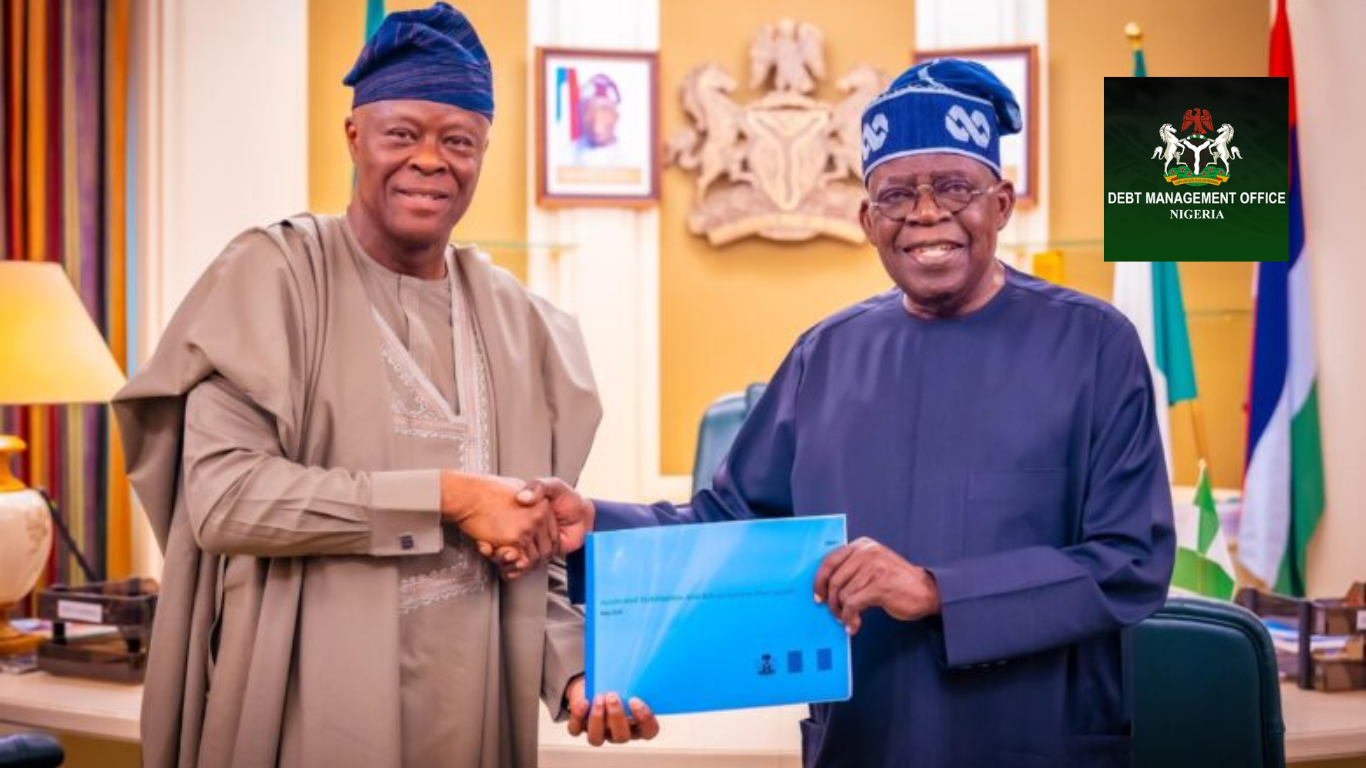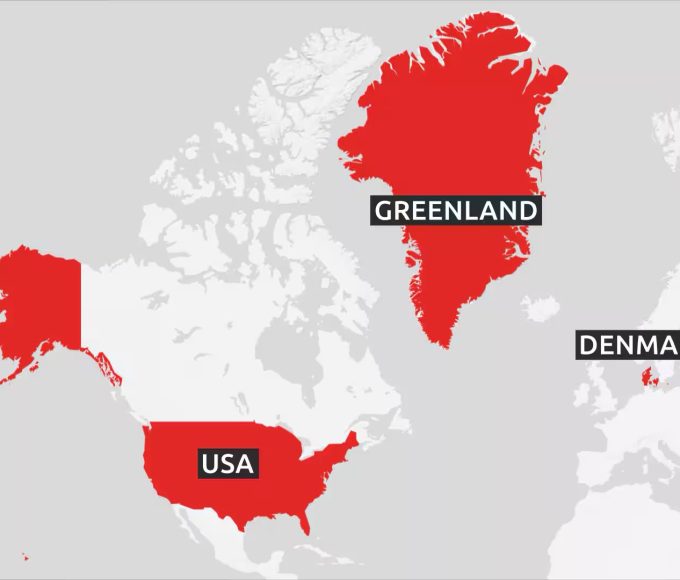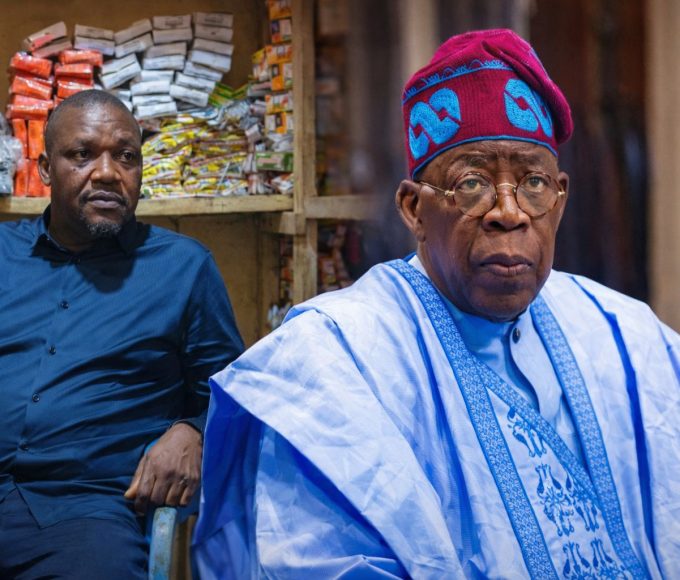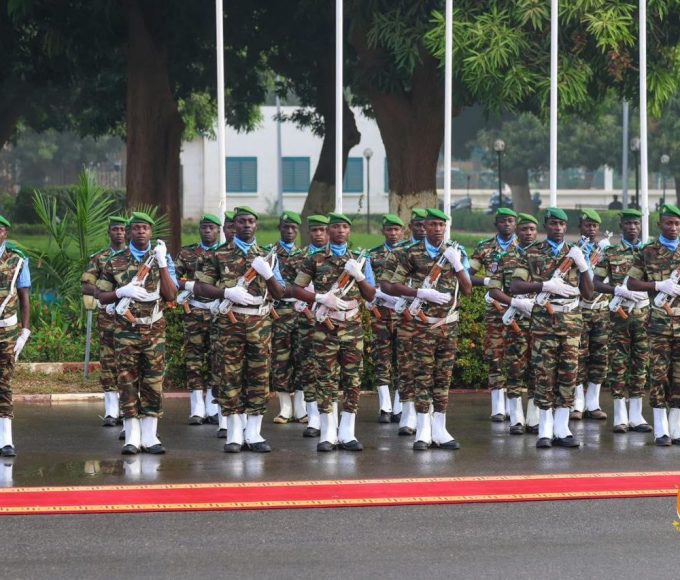
Nigeria’s Debt-to-Gross Domestic Product (GDP) ratio has surpassed 50% for the first time as the Debt Management Office (DMO) released a report on the country’s latest public debt figures.
DMO disclosed last week that Nigeria now has a public debt portfolio of ₦121 trillion, including a domestic (internal) debt of ₦65.6 trillion and a foreign (external) debt portfolio of $42.1 billion (₦56 trillion at an official CBN rate of US$1 to N1,330.26 as at March 31, 2024).
In a press release, DMO said Nigeria’s total debt as of March 31, (Q1) 2024, stood at ₦121.67 trillion compared to ₦97.34 trillion as of December 31, (Q4) 2023.
The report further explained that public debts are split between external and internal debt and the debt stock, which includes the debt stock (internal and external) of the thirty-six States and the Federal Capital Territory (FCT).
While the difference in increase between ₦121.67 trillion (Q1, 2024) and ₦97.34 trillion (Q4, 2023) is ₦24.33 trillion, the DMO attributed the debt stock and debt service to significant reforms, including the exchange rate and interest rate of USD/Naira, stating it had impacted “economic indices.”
The DMO also noted that the difference of ₦24.33 trillion was misinterpreted as New Borrowing, stating that the amount represents a new borrowing of 2.81 trillion as part of the New Domestic Borrowing of N6.06 trillion provided in the 2024 Appropriation Act. New Domestic Borrowing of N4.90 trillion for securitisation of the N7.3 trillion Ways and Means Advances approved by the National Assembly.
To further justify the perceived sharp increase of ₦24.33 trillion, the DMO explained that the Total External Debt Stock was relatively flat at $42.59 billion (Q4, 2023) and $42.12 billion (Q1, 2024), respectively, as the Naira values were “significantly” different at ₦38.22 trillion and ₦52.06 trillion respectively, with a difference of ₦17.8 trillion.
Meanwhile, the DMO, in conclusion, stated that the various measures, including the approved new external and domestic borrowing and securitisation of Ways and Means Advances, caused the country’s growing debt stock.
Yet, it implied that to attract foreign exchange inflows, these various measures should increase external reserves and support the Naira exchange rate.
This report has attracted criticism from the opposition leader of the Labor Party, Mr Peter Obi, who said, “We risk worsening economic situation” in the country as it is not utilised for productive purposes that drive economic growth and development.
About The Author
Mayowa Durosinmi
author
M. Durosinmi is a West Africa Weekly investigative reporter covering Politics, Human Rights, Health, and Security in West Africa and the Sahel Region
Mayowa Durosinmi
M. Durosinmi is a West Africa Weekly investigative reporter covering Politics, Human Rights, Health, and Security in West Africa and the Sahel Region
Related Articles
Trump’s Greenland Threat Forces Europe to Taste the Logic of Western Colonial Power
It rarely begins with soldiers. More often, it begins with a sentence,...
ByWest Africa WeeklyJanuary 21, 2026Tinubu Government Claims Intelligence Cooperation With the US, Yet New York Times Publishes Conflicting Story Following $9 Million US Lobbying Effort
When the New York Times published its investigation suggesting that claims from...
ByWest Africa WeeklyJanuary 19, 2026Mali’s Transition Leader Attends Swearing-In of Guinea’s President Mamadi Doumbouya
Mali’s President of the Transition, General Assimi Goïta, represented the country in...
ByWest Africa WeeklyJanuary 19, 2026Niger’s Security Forces Record Major Gains Against Armed Groups
Niger’s Defence and Security Forces have reported significant results following a week...
ByWest Africa WeeklyJanuary 19, 2026












